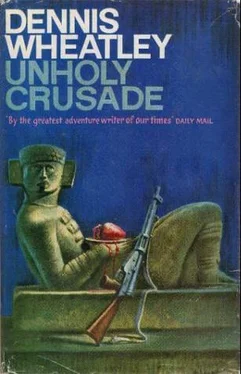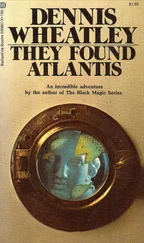Not a single possession of his or his family had survived, except the clothes he stood up in, and his parents' small nest egg was seriously eaten into by payment of their debts and equipping him with a new outfit. Then, after some days, Mr. McPherson, who owned the fishing net factory, had sent for him and Aunt Flora. As kindly as he could the old gentleman explained that, during he past ten years his business had suffered a serious decline, owing to competition from other factories which had more modern machinery. So, much as he would have liked to recognise Jamie cordon's long service by making adequate provision for his orphan, he could not afford to do more than allow the boy two pounds a week until he was seventeen when, should the business continue to survive, he would take him into it.
Adam did his best to appear grateful, but such a future had little appeal for him. He had not yet made up his mind what he wanted to do except, if possible, travel. He had heard enough about the hardships of his father's early life to set him against making the sea his career, but he did feel that if he continued to do well at school he ought to be able to get a job that would enable him to see something of the world. With this in mind, he worked it his lessons harder than ever.
The life he led favoured his efforts, as it was, for a boy of his age, an exceptionally lonely one. Aunt Flora had no friends whose youngsters might have become playmates for Adam. In consequence he was never tempted to abandon his homework in order to play games with other boys and his main pleasure was to browse among the books in the fine library of the Castle. History
was his favourite reading and he spent many a long, dark evening curled up in front of the fire in his aunt's sitting room, absorbed in accounts of battles and rebellions which, to most of his contemporaries, were only dates that had laboriously to be memorized.
Lord Ruffan spent the spring of that year in Barbados and Jamaica, so he did not come up for the fishing. Adam was now and then allowed to go out with the ghillies and, early in March, took great delight in landing his first salmon from the Helmsdale. But a month later a much greater excitement was in store for him. One evening he was looking through some of the older books in the library when out of a calf bound folio volume there fell a discolored parchment.
On examining it, he found it to be a letter from one Ian MacGilray whose family had for many generations owned the Castle to his wife. It had been written from Edinburgh in 1745, the year of Prince Charles Edward's attempt to regain the throne of Britain for the Stuarts. Hurriedly, it described the battle of Culloden in which the Pretender's forces had been defeated by those of the Hanoverian King. The Stuart cause was lost and MacGilray, with other survivors, was fleeing for his life, hoping somehow to get to France. It was now feared that King George's brutal English and German troops would overrun the whole of Scotland, paying special attention to the homes of Bonnie Prince Charlie's adherents and looting them of everything of value that could be carried off. Before leaving the Castle to join the Prince's army, as a precaution against defeat the MacGilray had hidden the family treasure, and there followed directions to his wife whence to recover it when the troubles were over.
The language was obscure and only someone who knew the estate well would have been able to interpret it, but after considerable cogitation Adam decided that the place where the treasure had been hidden must be under one side of the arch that spanned a small bridge over a tributary of the Helmsdale. He did not expect for one moment that the treasure was still there; yet, all the same, he could hardly contain his impatience to go and see what traces he could find of the cache that had once held the plate of the MacGilrays, and perhaps even gold and jewels. The hours of school next day dragged interminably. At last he was home, had bolted his tea and was free to hurry the mile to the little bridge.
The spot was a deserted one on the edge of a wood, and the bridge carried only a rough track used occasionally by farm carts and shooting brakes. Scrambling down the bank of the burn, he crawled under the low arch and looked about him, only to be disappointed. There was no romantic cavity in either wall and, as
he peered in the semi darkness at the moss covered stones, he could seen no unevenness suggesting that the hole had been hastily bricked up again.
It was not until two nights later that, thinking over the matter in bed, it occurred to him that several years had elapsed before
English had ceased to revenge themselves on the Jacobite nobility for the rebellion. During that time it would have remained unsafe to retrieve the treasure, and the MacGilray's wife might have died carrying the secret of its hiding place with her to grave.
Going downstairs to the library in his night clothes he hastily consulted the records of the family. Ian MacGilray had escaped France and his wife had joined him there. He had been tried in absence for taking up arms against his lawful Sovereign and
Castle and estates had been confiscated. The couple had never returned to Scotland and it was not until forty years later it a distant kinsman, who had married the daughter of a rich sugar nabob, had retrieved the estates for the family by purchase. Again Adam had to disguise his excitement and impatience. It was not until Sunday afternoon that he could go to the little bridge. Kneeling on the narrow strip of dry earth, the sweat poured from him as he wielded a heavy hammer and a jemmy. To prise free the first stone was far from easy; but once that was done, he was soon able to make an opening about eighteen inches square in the perished mortar. When he had found that, instead earth, there was a hollow space behind the stones, his excitement rose to fever pitch. Yet, on thrusting his hand into the hole met only emptiness. For a further ten minutes he hammered away and wrenched out more small blocks of stone. Then his exertions were rewarded. Peering into the dark cavity he could make out a section of one side of a small, round lidded iron bound chest.
Sitting back on his haunches he drew a deep breath and wondered what to do. Had his mother and father been alive he would have run to them with his amazing news. But Aunt Flora is another matter; so were the factor and the other men about the place. He had soon learned that they were suspicious of boys, regarding them as potential mischief makers, and the reactions of these grown ups were decidedly unpredictable. Swiftly he decided keep his secret to himself.
It would not have been possible to get the chest out that day; reluctantly, he replaced the stones and returned to the Castle clean himself up, eat his tea, then accompany his aunt to the Kirk for an evening service, of which he did not take in one word.
The next Sunday afternoon it poured with rain, so Aunt Flora would not let him go out. Somehow, he got through the following week. Then it was Sunday again and a fine afternoon.
To remove the stones was easy now, but when he attempted to pull the chest towards him the wood had become so rotten that it collapsed. Between the rusty iron bands at the nearer end there became visible a solid heap of precious objects: salvers, goblets and flagons of dull gold or silver, a jewel hilted skirndhu, a necklace of small pearls and, from a burst bag, a trickle of gold pieces.
Adam examined some of them with awe, then put them back and replaced the stones that hid them from view. Again he wondered how he could best benefit from his wonderful find. If he took even a few of the coins there was no possible way in which he could dispose of them; and he felt sure that if he told his aunt about the treasure it would promptly be removed. He might be given a few pounds to put in his savings account and that would be the last he would hear of it.
Читать дальше












